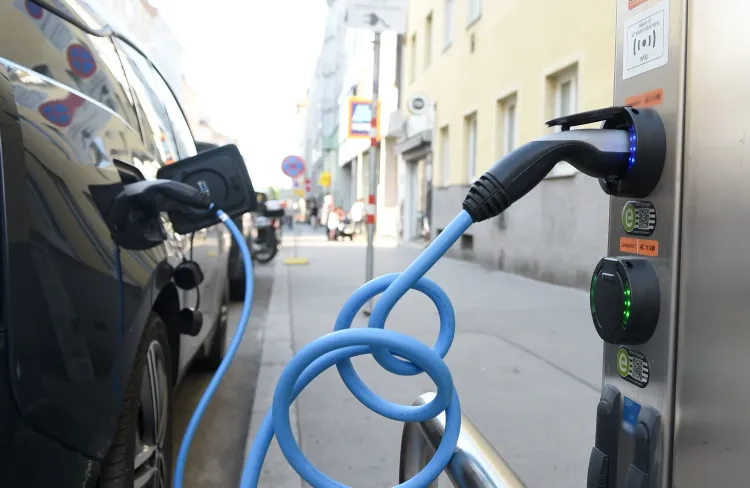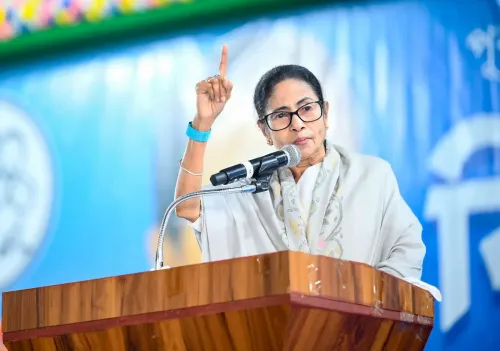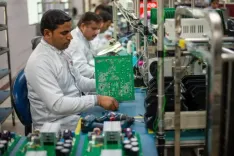Has the Market Share of Electric Cars in India Surged Past 4%?

Synopsis
Key Takeaways
- Electric vehicle market share in India has crossed 4%.
- Tata Motors is the market leader in electric car sales.
- Sales have increased significantly from last year.
- Global supply chain challenges may impact future growth.
- The Indian government is promoting investments in the electric vehicle sector.
New Delhi, June 8 (NationPress) The market share of electric passenger vehicles (EVs) in India has seen a significant rise, surpassing 4 percent in May this year, up from 2.6 percent during the same month last year. This shift highlights the growing enthusiasm for electric cars among Indian consumers as the nation embraces green mobility, as revealed by data from the Federation of Automobile Dealers Associations (FADA).
Notably, the share of electric passenger sales in May also increased by 0.5 percentage points from April's 3.5 percent, indicating a clear upward trajectory.
The retail statistics indicate that 12,304 electric cars were sold in May, compared to 8,029 units in May 2024, and 12,233 units in April of this year.
“This achievement marks a crucial milestone in the journey towards electrification within our industry. The growth is largely attributed to advancements in battery technology, enhanced range, and reduced costs compared to earlier models of electric passenger vehicles,” stated FADA CEO Saharsh Damani.
Tata Motors has retained its position as the market leader in the electric car segment, with 4,351 units sold in May. Its nearest rival, JSW MG Motor, experienced an impressive year-on-year growth of 149 percent, selling 3,765 electric cars. Mahindra & Mahindra came in third, with sales of 2,632 units. These three manufacturers together account for over 87 percent of total sales in this segment, according to FADA.
However, FADA cautions that global supply chain challenges, such as rare-earth material shortages and geopolitical tensions, may dampen urban consumer sentiment and increase cost pressures.
China, which dominates the supply of rare earth magnets—essential components in electric vehicle production—has begun implementing export restrictions, raising concerns about supply chain stability.
“Should the supply conditions for rare earth materials not improve, we may witness production slowdowns that could impact retail sales in the near term,” Damani commented.
In the meantime, the government has announced new guidelines aimed at attracting investments from global manufacturers in the electric vehicle sector, positioning India as a key manufacturing hub for e-vehicles.
To entice international companies like Tesla to invest, approved applicants will have the opportunity to import completely built-in units (CBUs) of electric four-wheelers valued at a minimum of $35,000 with a reduced customs duty of 15 percent for five years following approval.
These applicants will also need to invest a minimum of Rs 4,150 crore in accordance with the scheme's provisions.
Furthermore, the maximum annual import limit for e-4Ws at the reduced duty rate is set at 8,000 units, with provisions for the carryover of unutilized annual limits.










